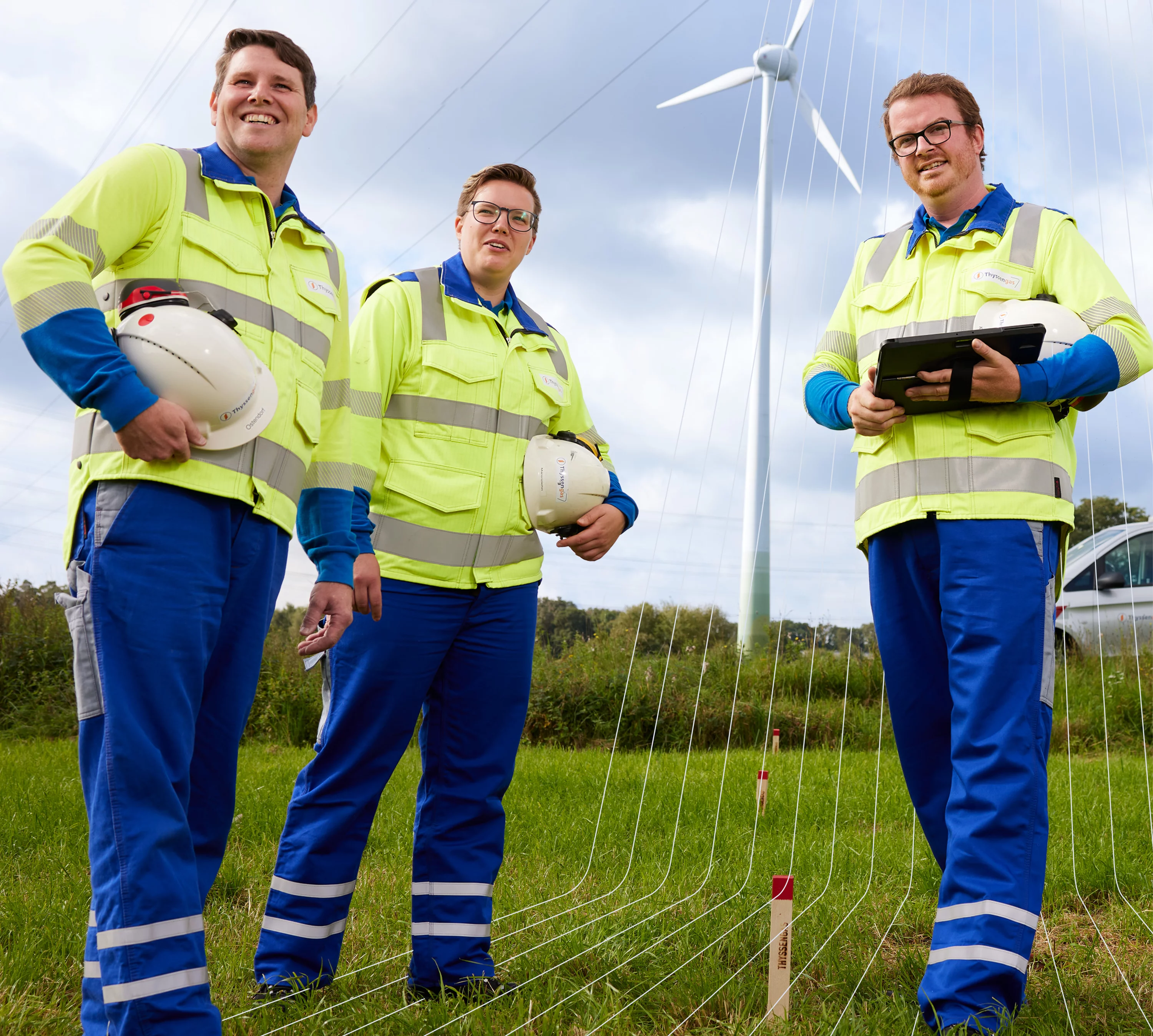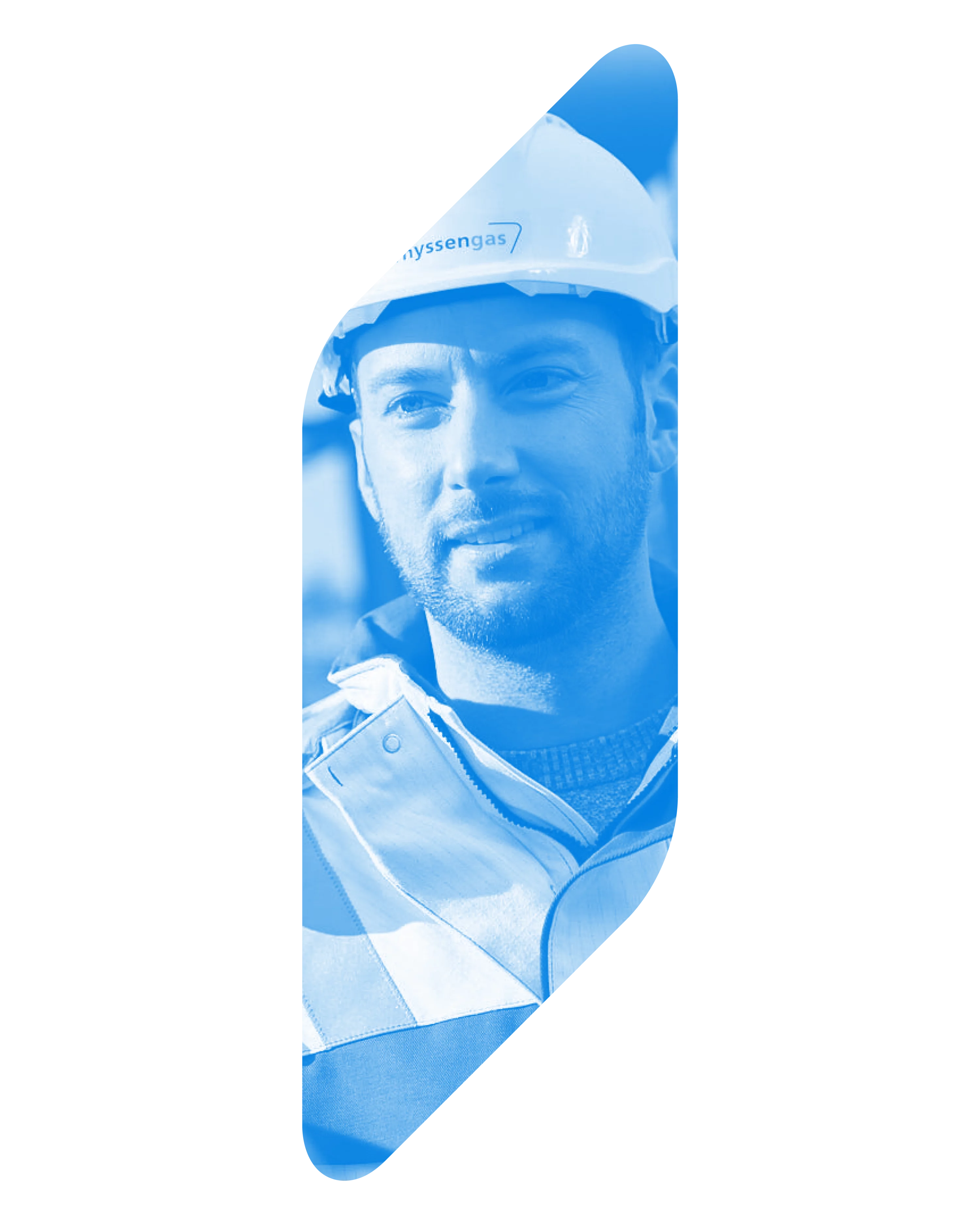The transformation from natural gas to green gases, above all hydrogen, is an opportunity of the century - not only for our company, but also for our industry and the achievement of climate targets. We have therefore been working intensively on the development of a corresponding transport infrastructure since 2018. Hydrogen as a central element of our transformation is certainly not a panacea, but we are convinced that it will play a decisive role in the decarbonisation of sectors that are difficult or impossible to electrify. With the approval of the Germany-wide hydrogen core network by the Federal Network Agency in October 2024, our vision is now becoming a reality. We will build or convert around 1,100 kilometres of lines in the coming years. Who better to report on this than those who are driving this transformation in our company? On this page you will find examples of the realisation of these projects. You can also find more information in the "Hydrogen" section.
New organisational structures
We are also venturing into new organisational territory for the implementation of our hydrogen projects. Cross-divisional project structures are intended to ensure transparency and clarity regarding decision-making levels and roles in view of the increasing complexity. We realise that we need to go beyond the mere introduction of new structures and fill them with life. This includes agile coaching, which aims to train employees in agile methods, build skills, expand the methodological toolbox and promote an agile culture.
Cross-border hydrogen infrastructure
In January 2023, we acquired a natural gas pipeline from RWE Generation SE for the development of a cross-border hydrogen infrastructure. As part of the "GET H2" initiative, this will enable the transport of hydrogen to the Ruhr region from 2027 - the twelve-kilometre pipeline between Vlieghuis and Kalle will form the first transition point in hydrogen transport between Germany and the Netherlands. Initial preparatory measures for the transport of H2 started in October 2023.
Hydrogen construction projects on site
"In Rheinberg, we are realising a total of around seven kilometres of H2 pipeline system by the end of 2027 to connect local industry and SMEs to the emerging core network. In view of the planning approval procedure for the new section between Wallach and Hohfeld, which is due in 2025, and the parallel conversion of the existing pipeline section between Hohfeld and Ossenberg, I can say with a clear conscience that we are making good progress. The close dialogue with the local population and politicians has been particularly helpful in this regard."
2018: Element One pilot project
Launch of the "ELEMENT EINS" pilot project in cooperation with the transmission system operator TenneT and the transmission system operator Gasunie Deutschland. The concept of an industrial power-to-gas plant is being pursued in order to convert electricity from renewable energies into green hydrogen.
2019-2021: Wasserstoff-Initiativen
By joining various hydrogen initiatives such as GET H2, Hydrogen Europe and H2morrow steel, Thyssengas is reaffirming its ambition to create a hydrogen infrastructure and is seeking dialogue with various players in the value chain.
2022: Start of the Thyssengas dialogue
Under the heading "Turning point in energy supply: How can a rapid hydrogen ramp-up succeed now?", Thyssengas is inviting stakeholders from politics, industry and administration to a dialogue for the first time. The format is proving successful and will be repeated for the fourth time in 2025.
2023: Realisation of first H2 projects
With the purchase of a natural gas pipeline from RWE Generation, Thyssengas will start building a cross-border hydrogen infrastructure at the beginning of 2023. The first preparatory measures for converting the pipeline will start at the end of 2023.
2024: Funding approval from the EU
The EU approves the funding of GET H2 projects and thus also confirms a Thyssengas project as an "important project of common European interest" (IPCEI). Thyssengas thus receives funding totalling around 18.7 million euros.
2024: Approval of the core network
In October 2023, Federal Minister of Economics Dr Robert Habeck and Thyssengas Managing Director Dr Thomas Gößmann present the plans for the hydrogen core network at a joint press conference. One year later, official approval is granted by the Federal Network Agency - the official go-ahead for the construction of the network.
2032: Completion of the core network
The 9,040 kilometre network, which consists of around 60% conversion of existing gas pipelines and 40% new construction, will be completed on schedule. Thyssengas is involved with around 1,100 kilometres of pipeline. The core network connects important industrial centres, ports and energy production sites and enables close links with our European neighbours.



